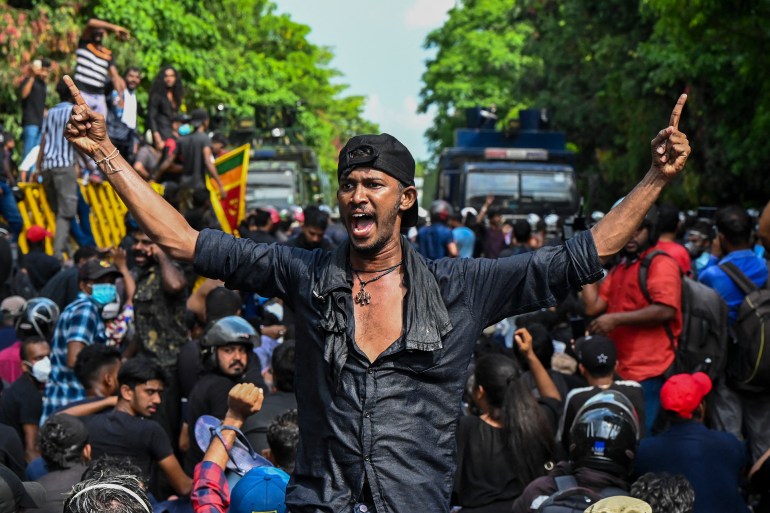Sri Lanka's President Gotabaya Rajapaksa has declared a state of emergency in the country from midnight on Friday on security grounds, amid a nationwide strike called by unions to demand the government's resignation.
The state of emergency in the country - which is declared for the second time in 5 weeks - gives the security forces expanded powers in front of large-scale demonstrations.
A spokesman for the president said Rajapaksa had activated the state of emergency laws "to preserve public order," adding that "the president used his executive powers to impose a state of emergency, to ensure the continuation of essential services, and to maintain public order."
By imposing a state of emergency, the security forces are granted expanded powers that allow them to arrest suspects and detain them for long periods without judicial supervision, and the decision also allows the deployment of the army to maintain public order with the support of the police.
Protests have been going on for 5 weeks to demand the resignation of the president and the government (French)
full strike
Today, Friday, millions of workers responded to the unions' call to strike, causing almost all trains to stop, private buses to stop, workers to gather in front of their factories, and black flags to be raised across the country in expression of anger at the government.
Police fired tear gas and used water cannons to disperse students who tried to storm Parliament on Friday, while public transport was suspended and offices were emptied of workers as a result of the strike.
Since Thursday, thousands of students have gathered on the road to the legislature, which is located on an artificial island on a lake in the capital, Colombo.
The police fired a barrage of tear gas at them before directing water cannons from two trucks, but the demonstrators quickly regrouped behind the police barriers set up to prevent access to Parliament.
Power cuts and shortages of food, fuel and medicine for several months exacerbated poverty on the island and led to large demonstrations calling for the government's resignation.
The economic crisis - the worst since the country's independence in 1948 - erupted after the Covid-19 epidemic led to a significant decrease in tourism revenues and remittances from expatriates.
President Gotabaya Rajapaksa has confirmed several times that he will not step down despite the escalation of protests and the presence of a sit-in in front of his residence for nearly a month.
Because they are unable to pay for fuel imports, government departments have imposed daily power cuts to ration electricity, while long queues line up outside gas stations to buy gasoline and kerosene.
Sri Lanka announced on April 12 that it would default on its $51 billion foreign debt, and Finance Minister Ali Sabri warned that the country may suffer from this crisis for another two years.

